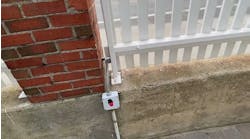You’re the plant maintenance supervisor, reporting directly to the plant engineer. Machine 23 makes a highly profitable part for a very important customer. Your company can sell all the parts this machine makes. Unfortunately, it has not made any parts for two days.
During a video conference yesterday with engineers at the company that built this machine, it was determined that one of their factory-trained techs will have to service the equipment in person. Their factory is about a two drive away from yours, so a tech was dispatched this morning along with replacement modules and other spare parts. One of the idled operators was assigned to meet him at the entrance and escort him into the plant and to the machine.
Only a minute ago, you hung up your phone after speaking with the division vice president about the situation. The VP sounded pleased and relieved. She said she would be calling the customer to tell them the situation was under control and at least some parts would ship probably today.
Then your phone rang again. It was the operator.
Your plant has always required safety glasses and hearing protection on the manufacturing floor. This summer, it also began requiring a face covering to enter the lobby. There’s actually a gift box with a selection of masks and gaiters for those who did not bring something of their own.
The problem the operator reported is the tech walked into the lobby without a face covering and refuses to wear one. He also says he can’t see well enough with safety glasses on and doesn’t want to stick anything into his ears so no earplugs for him. So the operator wants to know if it’s OK to make an exception. After all, everyone is desperate to get that machine running again.
Should you make an exception? Or should you phone the tech’s company and tell them about the problem? That tech’s boss will probably tell that tech to put on the safety gear and fix the machine.
Probably the best way to handle this is to have the operator put the tech on the phone. Say that you just got off the phone with your division VP. Tell the tech you could call her back and say you’re in a bind over this misunderstanding. “You might be thinking she would call your boss. No, she’s going to call the president of your company who will then call you. I’m sure you don’t want that phone call. Would you rather just put this stuff on for a little while and not have that kind of trouble?”
Taking this approach, you’re not getting into a contest of wills with the tech. His company wants him to fix that equipment, and he will lose his job if he doesn’t do it. So he doesn’t have the option of refusing to fix it. It’s also expected that any service tech will wear the PPE required by the client. These basics of glasses, earplugs, and a face covering are not onerous.
If the tech obliges, pretend the issue never came up. When you meet him, greet him warmly and thank him for showing up on such short notice. But if he decides not to comply, call the VP and see how long it takes for that tech’s phone to ring. Once he gets with the program, act as if the issue never came up. The important thing is that the equipment gets fixed and safety protocols are followed. Be sure to thank him for a job well done, and maybe give him a pair of safety glasses as a souvenir.




